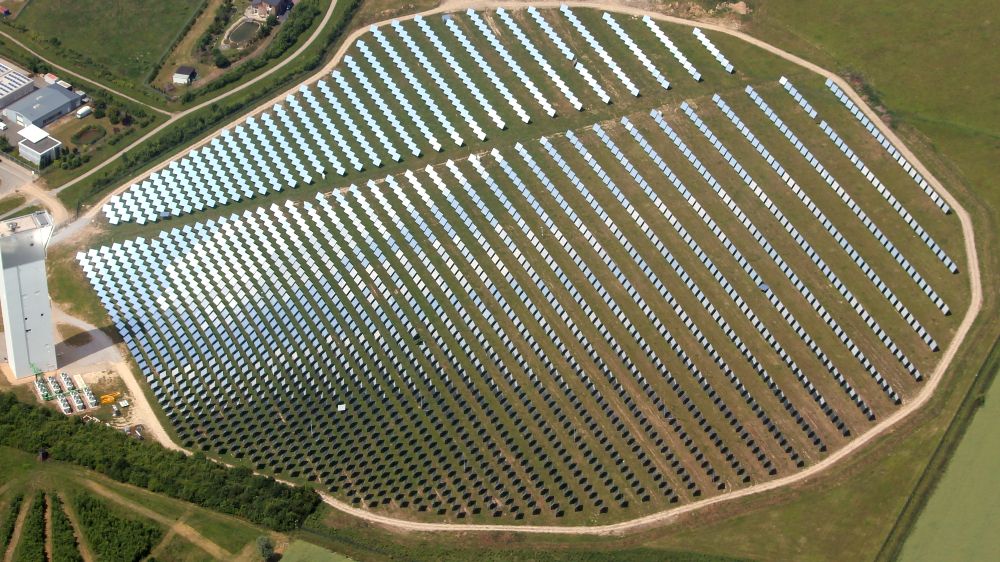
IEA SolarPACES - Solar Power and Chemical Energy Systems
Solar thermal power plants convert solar irradiation into heat. Unlike solar collectors, however, they do not use this heat directly to heat buildings, but rather to generate electrical power. To do this, the bundled sunlight first heats a heat transfer medium such as thermal oil or liquid salt. This in turn heats water. The resulting steam drives turbines and therefore the generators, which produce climate-friendly electrical energy. Another advantage of this technology: The heat gained can for instance be stored in liquid salt tanks and can be converted into power when the sky is overcast or at night.
The low level of direct solar irradiation in Germany means that it is not possible to produce green power economically in solar thermal power plants. German technological know-how, on the other hand, is in demand around the globe - for the construction of plants in countries such as Morocco, Spain or the United Arab Emirates. For this reason, German scientists are researching technologies, methods and services in the field of solar thermal solar energy in the TCP SolarPACES together with their colleagues from many countries.
Promoting energy partnerships
In concrete terms, the objectives are to promote energy partnerships between countries through joint projects, to define international guidelines and standards, and to bring innovative technical and process engineering solutions, such as solar fuels, to market maturity. The main objective is to reduce the cost of the technology in order to be competitive. The members work on the topics arising for this in several so-called Tasks. The various research activities are also coordinated with other IEA-TCPs and renewable energy organisations.
Germany is active in all six of the ongoing Tasks of TCP SolarPACES. Of these, Task III and IV are managed by the German side as Operating Agent.
Year of foundation: 1990, created from the predecessor group "Small Solar Power Systems" (SSPS)
Members: European Commission and 18 countries: Australia, Austria, Chile, China, France, Germany, Greece, Israel, Italy, Mexico, Morocco, Namibia, Republic of Korea, South Africa, Spain, Switzerland, United Arab Emirates and United States of America
Funding: Task-shared
Contact
ExCo-Alternate: Dr. Tarik Schwarzer, Germany, t.schwarzer@fz-juelich.de

